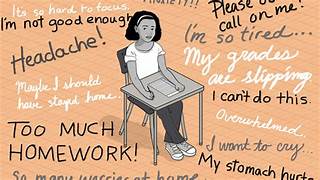Tips for Navigating Parent-Teacher Conferences
Parent-teacher conferences are essential for fostering communication between home and school. They provide an opportunity for parents to gain insight into their child’s academic progress, behavioural development, and overall well-being at school. For many parents, however, these meetings can feel a bit daunting. The idea of discussing their child’s strengths and areas for improvement with a teacher may raise concerns or even anxiety. But, with the right approach, parent-teacher conferences can become a productive and empowering experience. Whether you’re a seasoned conference attendee or this is your first time, it’s important to prepare in advance to make the most of these conversations. In this article, we’ll discuss some practical tips to help you navigate parent-teacher conferences with confidence and clarity.
1. Prepare Ahead of Time
To ensure a meaningful and productive conference, preparation is key. Before meeting with the teacher, take time to reflect on your child’s performance, behaviours, and any concerns you may have. This allows you to approach the meeting with specific questions and goals in mind, ensuring that all relevant topics are covered.
How to Prepare:
- Review your child’s recent assignments, tests, and report cards to understand their academic progress.
- Make a list of any questions or concerns you have about your child’s performance or behaviour.
- Discuss with your child about their experiences at school, what they enjoy, and what they find challenging.
- Think about what you want to achieve from the meeting, whether it’s understanding their strengths, addressing areas for improvement, or discussing behavioural issues.
Preparing ahead of time will make the meeting more productive, allowing you to get the information you need to support your child effectively.
2. Be Open-Minded and Positive
Parent-teacher conferences are a time for collaboration, not confrontation. Keep in mind that teachers are there to work with you to ensure your child’s success. While you might have concerns, it’s important to approach the conversation with an open mind and a positive attitude. Teachers are often just as invested in your child’s success as you are.
How to Maintain a Positive Attitude:
- Start the conversation by asking the teacher what your child excels at or what they’ve observed to be strengths.
- Be open to hearing about areas where your child may need improvement and approach these discussions constructively.
- Avoid getting defensive if the teacher brings up concerns. Instead, focus on solutions and how you can work together to support your child.
By staying open-minded and positive, you can help foster a productive and collaborative relationship with the teacher, which will benefit your child.
3. Focus on Specific Concerns
If there are any specific concerns you have about your child’s academic performance or behaviour, be sure to bring them up during the meeting. However, it’s important to approach these concerns with clear, specific examples to help the teacher understand the issue more thoroughly. Generalised statements or vague concerns can make it harder to address the problem effectively.
How to Focus on Specifics:
- Instead of saying, “My child is struggling in class,” try saying, “I’ve noticed that my child has been having trouble with their math homework lately, especially with fractions. Could you tell me how they’re performing in class?”
- If you’re concerned about behaviour, share specific examples of what you’ve observed at home or in other settings.
- Ask the teacher for insights into how your child’s behaviour or performance is being managed in school and how you can reinforce this at home.
Focusing on specific concerns allows for targeted discussions that can lead to effective solutions.
4. Ask for Actionable Suggestions
While a parent-teacher conference provides valuable feedback, it’s equally important to leave with actionable suggestions on how to support your child’s development. Whether it’s improving their study habits, enhancing their social skills, or managing their behaviour, request clear recommendations from the teacher that you can implement at home.
How to Ask for Suggestions:
- Ask the teacher for strategies to help your child improve in areas where they may be struggling.
- Inquire about resources or tools that can aid your child’s learning, such as websites, apps, or extracurricular activities.
- If your child is experiencing behavioural challenges, ask for advice on how to address these issues at home.
Actionable suggestions help you actively contribute to your child’s growth and make it easier to support their development beyond the classroom.
5. Take Notes During the Meeting
Conferences can be fast-paced, and important points can be easily forgotten. Taking notes during the meeting will help you remember key information and follow up on any suggestions or concerns discussed. It also shows the teacher that you’re engaged and serious about your child’s success.
How to Take Effective Notes:
- Jot down any key observations or feedback the teacher provides.
- Note down any strategies or resources suggested by the teacher to support your child.
- Make sure to write down any follow-up actions, including specific tasks for both you and the teacher.
Notes will serve as a helpful reference for future discussions and will keep you on track in supporting your child.
6. Maintain Open Communication Post-Conference
Parent-teacher conferences should not be a one-off event. Ongoing communication between parents and teachers is essential for tracking your child’s progress and addressing any concerns that may arise throughout the school year. After the conference, stay in touch with the teacher through email, phone calls, or follow-up meetings if needed.
How to Stay in Touch:
- Ask the teacher for their preferred method of communication (email, phone, etc.) and establish a regular check-in schedule.
- Stay updated on your child’s progress by reviewing their assignments or grades periodically.
- Let the teacher know if any changes occur at home that might affect your child’s performance or behaviour.
By keeping the lines of communication open, you can ensure that you and the teacher remain aligned in supporting your child’s development.
7. Involve Your Child in the Process
It’s important to involve your child in the discussion, especially as they get older. This can help them develop a sense of responsibility for their own learning and empower them to take ownership of their progress. After the parent-teacher conference, sit down with your child to discuss what was talked about and how they can contribute to their improvement.
How to Involve Your Child:
- Share the feedback from the teacher in a positive and constructive manner.
- Set goals together based on the discussion during the conference.
- Encourage your child to take an active role in implementing any suggested strategies.
Involving your child in the process helps them understand the importance of their education and fosters a growth mindset.
Conclusion
Parent-teacher conferences are a valuable tool for building a collaborative relationship between parents and teachers, which can have a positive impact on your child’s academic and personal development. By preparing ahead of time, staying open-minded, and maintaining ongoing communication, you can make the most of these conferences and contribute to your child’s success. The key is to approach the meeting as a partnership, with a shared goal of helping your child thrive in school and beyond.
FAQs
How often should I attend parent-teacher conferences?
It’s important to attend conferences at least once a year, but if you have ongoing concerns, it may be helpful to meet with the teacher more frequently.
What if I disagree with the teacher’s assessment of my child?
It’s important to approach the situation calmly and respectfully. Ask for specific examples or further clarification, and discuss potential solutions together.
How can I prepare my child for the parent-teacher conference?
Encourage your child to be open and honest about their experiences at school. If they’re older, help them reflect on their strengths and areas for improvement.
Should I bring my child to the conference?
This depends on the child’s age and the nature of the meeting. For younger children, it’s generally better to attend alone, but older children can often benefit from being part of the conversation.
What if I can’t attend the scheduled conference?
If you’re unable to attend, reach out to the teacher to reschedule or request a phone conference or email update.
How can I best support my child at home after the conference?
Follow through on any strategies or recommendations made by the teacher, and stay engaged with your child’s progress by providing consistent support and encouragement.
What if my child’s teacher is hard to communicate with?
If you’re having difficulty connecting with the teacher, try different communication methods (email, phone, etc.) and remain patient while working towards a solution.






